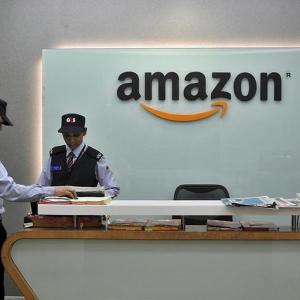Market boom, success of global start-ups key drivers.

Over 10 Indian start-ups with total valuations of $84 billion (some are planning fresh fund-raising) are bracing to launch initial public offerings (IPOs) in the next 36 months.
While the size of their IPOs is under discussion, estimates are that they would together raise a minimum of over $8-10 billion during the initial listing.
It could be higher, as valuations are expected to go northwards for most of these start-ups, which all have massive growth and market-share acquisition plans, say merchant bankers keeping close tabs on the developments.
The companies - among the 37 unicorns considering an IPO - include Byju’s, Paytm, Flipkart, Zomato, InMobi, Nykaa, Delhivery, Grofers, PolicyBazaar, and Udaan, according to merchant bankers and various announcements.
The 10 players have collectively raised funding of around $19.2 billion, which means their valuations have already gone up fourfold.
There are others, such as Cars24, who might join in, but not right now.
Under the IPO rules, companies with an assumed market capitalisation of less than Rs 1,600 crore need to have a public float of 25 per cent.
Those above can start with a minimum 10 per cent, going up to 25 per cent in three years.
What’s prodding them to get going is the stock market boom, the success of IPOs such as Burger King in India, and of global start-ups like Airbnb in the US, the push from investors for an exit route, and the fact that many technology start-ups are already profitable or have cut losses.
Byju Raveendran, founder of Byju’s, which is valued at $11.1 billion, said he is looking at a listing in the US or both in India and the US.
“The time frame for our IPO would be 24-36 months.
"Our Indian operations are already profitable and we expect the international business, where we are currently in the investment phase, to also be profitable in two years.”
The company will raise money through the IPO for acquisitions, especially global acquisitions, and for more investments, as it expands globally to other English- speaking countries.
InMobi, the country’s first unicorn way back in 2011, is also planning an IPO.
Founder and chief executive officer (CEO) Naveen Tewari said his time frame was six to 18 months.
“We have been a profitable company since 2016 and in the last two years this has scaled up,” said Tewari, adding that the money will be used for global acquisitions.
According to a merchant banker’s assessment, InMobi could get a valuation of $12-14 billion.
Its existing valuation (which analysts base on the last money raised) is based on the fact it raised $200 million from SoftBank in 2011, which helped it to become the first unicorn in the country.
Since then, it has not raised any cash.
There are others like Nykaa, which are also well on the way to profitability. Falguni Nayar, founder and CEO of Nykaa, said she has seen strong year-on-year revenue growth since inception and continuously improving unit economics.
“2019-20 (FY20) witnessed over Rs 1,860 crore in revenue and Rs 94 crore in earnings before interest, tax, depreciation, and amortisation (Ebitda). Our desire is to build a sustainable business,” said Nayar.
In its discussions with Goldman Sachs, Nykaa had said its online beauty business is already Ebitda-positive since 2018-19 and has become profit before tax-profitable in FY20.
The goal now is to become Ebitda-positive in the fashion segment, too, by 2021-22.
Start-ups have various options for taking the IPO route.
Listing on the Indian bourses, for instance. Like other companies, start-ups which have a three-year average operating profit of Rs 15 crore can file for an IPO.
However, under the relaxed rules, even non-profitable companies (many start-ups come in this category) can list, but the rules are different.
Said Ajay Garg, founder, Equirus Capital, which helps companies to list: “For companies without a profit track record, 75 per cent of the issue has to be held by qualified institutional placements (QIPs), 10 per cent by high networth individuals (HNIs), and the rest retail.
"In companies with a profit track record, the ratio is 50 per cent QIPs, 15 per cent HNIs, and the rest retail."
Many start-ups with holding companies incorporated abroad can list on the US market.
Apart from more money being available, there are no profitability restrictions, added Garg.
What’s more, they can either list directly or through a special-purpose acquisition company (SPAC).
Many companies like Grofers are looking at the indirect listing route by merging with a SPAC — a shell company which uses the proceeds from the IPO to acquire or merge with a private company.
However, starts-ups incorporated in India do not have this option.
The Securities and Exchange Board of India (Sebi) has had discussions on permitting them to list directly abroad, but they have to list in India too. The dual listing proposal has been opposed by most start-ups.
To help technology companies to list, Sebi has also set up the ‘Innovators Growth Platform’ whose rules are being further liberalised.
But only institutional and accredited investors can trade in this market.
Bala Deshpande, founding partner of private equity fund MegaDelta Capital Advisors, said offering 75 per cent of the IPO to QIPs is a good option for non-profitable start-ups to list.
“These investors look for growth of the business and its potential. Retail investors are, of course, focused on profitability,” he said.
Experts also caution investors against rushing into start-up IPOs based on high valuations.
Amit Tandon, founder of investor advisory services Institutional Investor Advisory Services (IiAS), points out that there is so much liquidity that valuations are high.
“In start-ups you are betting on the future. You have to ask the question how long — how long are you ready to wait?
"You have to look at the start-up’s unique selling proposition, the size of the market it operates in, its share, and if it has a technology edge, among other factors,” said Tandon.










